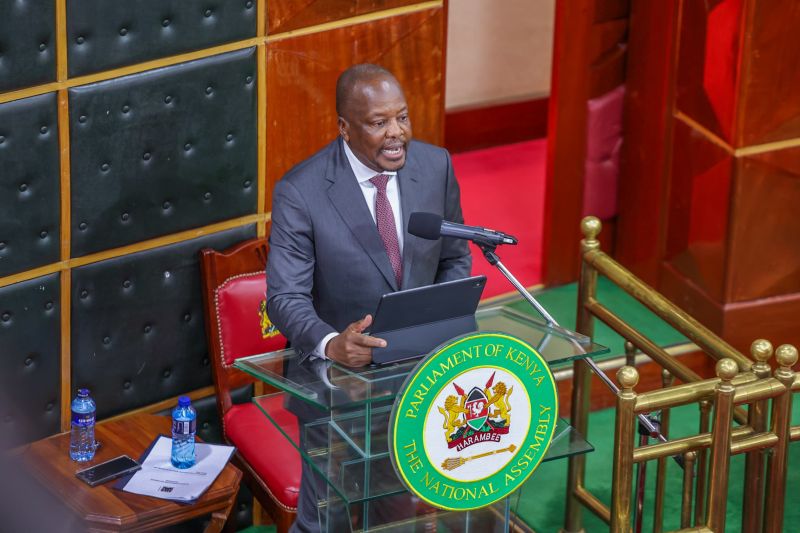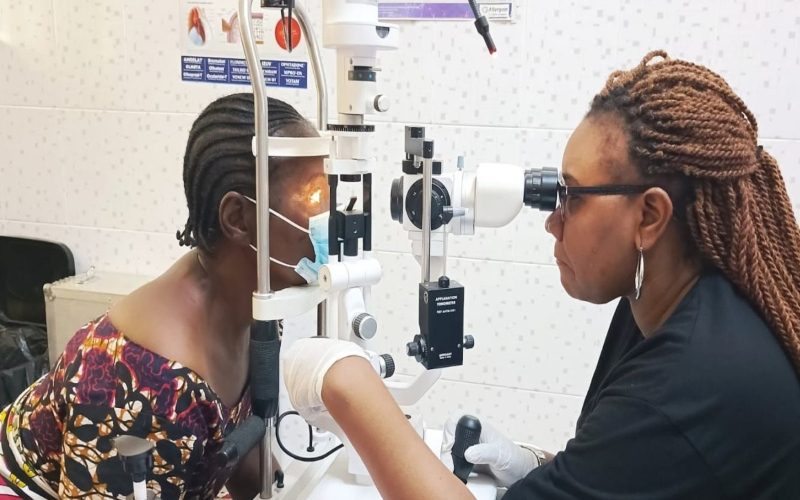Gen Z redefining work: Young Kenyans demand purpose, balance, respect in workplace

They are not just changing workplace culture; they are demanding that it finally catch up with the modern world.
When 23-year-old Faith Wanjiku secured her first full-time position at a Nairobi-based digital marketing agency, she was enthusiastic and eager to contribute.
However, it did not take long before the rigid hours, hierarchical management and a lack of meaningful feedback began to take a toll.
More To Read
- Morocco's Gen Z protests: What you need to know
- Morocco: Gen Z protests turn violent, two killed
- Morocco: Police detain dozens in Gen Z protests
- Study finds Gen Zs face tougher job market than their predecessors
- State mulls flexible workplace culture as Gen Z pushes beyond suits and traditional norms
- Millennials edge out Gen Z in internet use – CA study
“I remember asking whether we could work remotely one day a week. My supervisor looked at me as though I had requested a promotion. It was not about avoiding work; it was about maintaining balance,” she recalls.
Wanjiku is part of Generation Z, individuals born between the late 1990s and early 2010s, who are now entering the workforce in significant numbers. And unlike previous generations, they are not merely seeking employment, they are redefining it.
Generation Z is often compared to Millennials, but workplace analysts say the two cohorts are shaped by very different experiences, and it shows in how they behave on the job.
While Millennials came of age during a global financial crisis, most of whom are firstborns in their families, and often adopted a “work hard, stay grateful” mentality, Gen Z entered adulthood during a pandemic, rising inflation, and increasing conversations around mental health, climate change and social justice.
Powered by social media influence and movies in this digital age, these pressures have made them more vocal, more values-driven and far less willing to “stay in line”.
“I need to feel as though the work I do has a positive impact,” says 25-year-old user interface designer Brian Odhiambo.
“I do not want to simply collect a salary; I want to be proud of the values my employer upholds.”
Clear distinction
Odhiambo adds that he sees a clear distinction between his peers and Millennials in the way they interact with authority at work.
“I’ve noticed many Millennials just follow what the boss says, even when it doesn’t sit right with them. They grew up being told to keep their heads down and be grateful, or what they have will be taken away from them. To me, that feels outdated and sheepish. We ask questions not to be difficult, but because we believe workplaces should evolve; at the end of the day we choose each other, right? Blind obedience doesn’t lead to progress.”
Faith Wanjiku agrees, and she believes Gen Z's willingness to speak up is often misunderstood as arrogance.
In Kenya, where traditional values around hierarchy and respect for authority have long shaped workplace culture, this generational shift is especially significant.
“In most Kenyan offices, there’s still this unspoken rule that you should not challenge your seniors, even when they are clearly in the wrong,” she explains.
“We were raised to respect elders automatically, which in many cases translates to staying silent and enduring poor leadership.”
Mindset slowly changing
However, Wanjiku says that the mindset is slowly changing as more young professionals begin to unlearn the ‘suffer in silence’ culture and demand workplaces that encourage open dialogue, accountability and mutual respect.
“We’re not being rude, we’re just setting a healthier standard,” she says.
“Respect goes both ways.”
In countries like the United Kingdom and the United States, this cultural transformation has been underway for a while. There, open feedback, cross-generational collaboration, and inclusive leadership are increasingly normalised, especially in progressive companies.
Kenyan youth, particularly those exposed to global work environments or remote international teams, are now bringing that same assertiveness and value-driven approach back into local contexts.
“Through remote work and digital platforms, we see how teams in the UK or US thrive when younger employees are empowered to contribute ideas,” Faith adds.
“It’s encouraging to see that shift slowly happening here, too.”
Workplace culture experts say this evolution is necessary.
In a global economy where innovation thrives on diverse voices and dynamic thinking, clinging to outdated hierarchies may hinder progress more than preserve it.
This outspokenness is not limited to workplace processes, it extends to mental well-being, equality, and company culture. Gen Z employees are more likely to speak up about toxic work environments, unrealistic workloads and a lack of inclusion.
Setting boundaries
“Millennials often sacrificed their boundaries to get ahead. We’re not doing that,” says 24-year-old data writer Vanessa Achieng’.
“We believe that setting boundaries is not a weakness, it’s a form of self-respect. I will give my best to any role, but I won’t let it consume me.”
Workplace consultant Susan Njoroge believes this mindset is a result of Gen Z being raised in a hyper-connected world where information and advocacy are always a click away.
“This generation has seen burnout stories play out in real-time on social media. They’ve watched older colleagues suffer in silence. That’s why they speak up, they’ve learned that silence comes at a cost.”
According to Deloitte’s 2024 Global Gen Z Survey, approximately 73 per cent of Gen Z respondents stated they would consider resigning from a job that negatively affects their mental health.
This new outlook is forcing employers to reconsider not just how they manage their teams, but the very definition of work itself.
One of the clearest signals of change is Generation Z’s willingness to challenge the conventional 9-to-5 work schedule. Many believe that performance should be measured by results rather than time spent at a desk.
“Work should be evaluated by output, not by how many hours someone sits in an office,” Njoroge says.
“This generation has grown up with technology. Many of them can complete tasks quickly and independently with the help of digital tools. Forcing them to observe rigid hours feels counterproductive.”
Gen Z prefers flexible working arrangements, open communication channels, and inclusive, tech-forward work environments. Yet not all employers are ready to embrace these changes.
Flexible working hours
“They want to be promoted in their first year,” says a Nairobi-based manager who requested anonymity.
“They question everything, even before they fully understand the industry. Honestly, it can be exhausting.”
While some interpret this questioning nature as entitlement, others see it as a necessary disruption, one that could modernise workplace culture for the better.
“Generation Z is compelling us to revisit our leadership models,” Njoroge says.
“Their demands are not frivolous. They are raising important questions about how we work, how we lead, and how we treat people.”
Njoroge believes that mutual respect, transparency and adaptability are key to navigating this shift.
“Organisations that are willing to evolve will retain talent. Those that do not may find themselves struggling to fill key roles.”
This is not speculation. According to multiple workplace insights shared on LinkedIn Kenya, companies that offer mental health support, career development opportunities and hybrid working models are proving more successful in attracting and retaining Generation Z employees.
So, as this new generation continues to populate office spaces, co-working hubs, and virtual teams, their expectations are impossible to ignore. They are not just changing workplace culture; they are demanding that it finally catch up with the modern world.
“We are not lazy. We are simply unwilling to sacrifice our well-being and sense of purpose for outdated structures that no longer serve anyone.”
Top Stories Today

















































